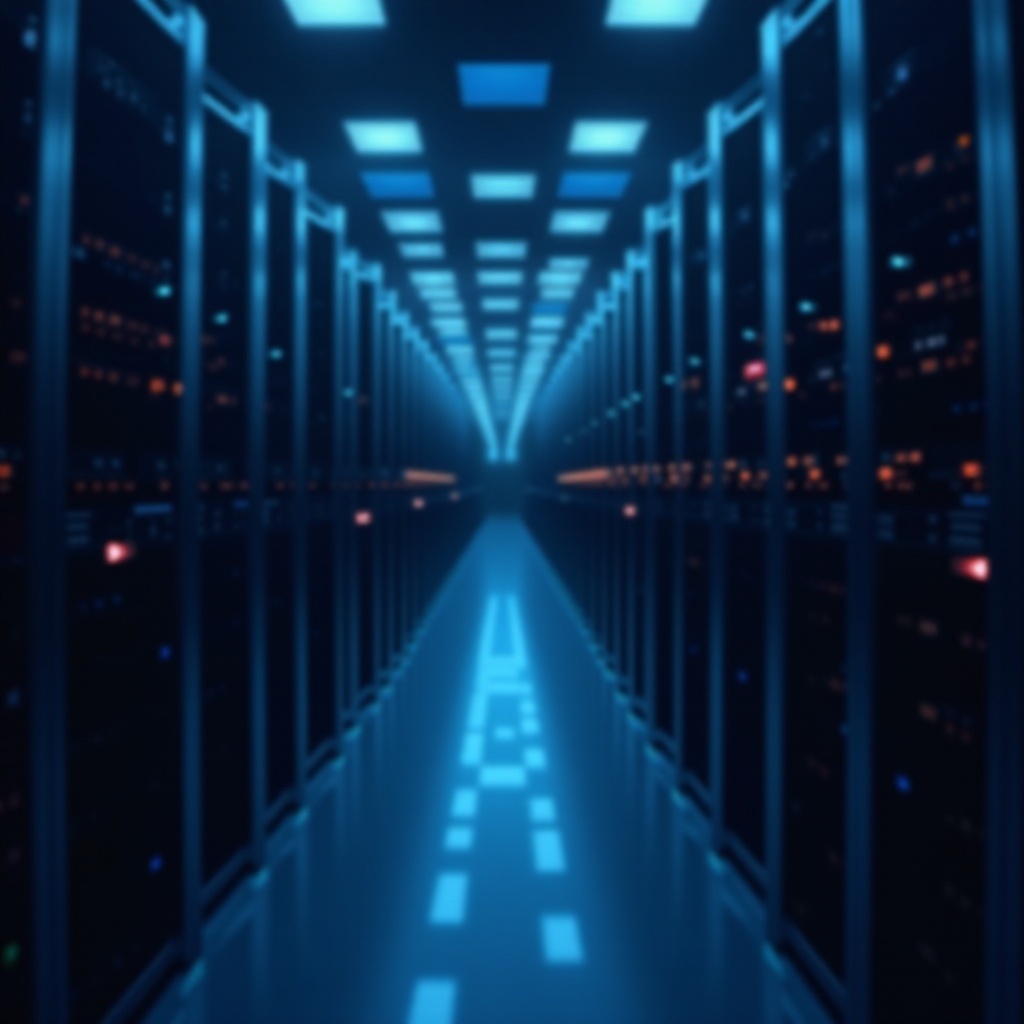Introduction
Computer crashes are unexpected interruptions that can severely hinder productivity and sometimes lead to data loss. Whether it occurs during professional work or recreational gaming, a crash can bring your tasks to an abrupt halt. Understanding the underlying causes of computer crashes can significantly help in reducing such disruptions. This guide seeks to discuss the primary factors contributing to computer crashes, covering hardware, software, and external influences. Additionally, it addresses methods for diagnosis and preventive measures to sustain a reliable computer.

Common Hardware Causes of Computer Crashes
Hardware failures are often the primary suspects when it comes to computer crashes. These issues can present themselves in multiple forms, causing frustration and inconvenience.
Overheating Issues
Overheating is a frequent cause of system crashes. Computers generate a significant amount of heat; without adequate ventilation and cooling mechanisms, components may exceed safe temperatures and fail. Symptoms of overheating typically include random shutdowns, serving as indicators of poor cooling strategies.
Faulty RAM
Problems with Random Access Memory (RAM) can result in various issues, including system crashes. Faulty or inadequate RAM impairs system performance as the computer struggles to process active tasks effectively.
Hard Drive Failures
A deteriorating hard drive can drastically affect a system’s stability. Signs such as unusual noises or frequent crashes during data-intensive operations indicate potential hard drive problems. Regular data backups are crucial to safeguard against data loss in such scenarios.
While hardware forms a massive part of system stability, analyzing software impacts is equally essential to gain a comprehensive understanding of computer crashes.

Software-Related Causes
Software issues frequently lead to instability, resulting in unexpected system crashes that may cause significant disruption.
Operating System Conflicts
Conflicts within an operating system (OS) manifest when software applications clash, often due to incompatible updates or configurations. These conflicts can lead the system to become unresponsive or to crash.
Outdated or Corrupt Drivers
Drivers serve as the medium for communication between hardware components and software. Outdated or corrupted drivers can destabilize a computer, inciting unwanted crashes. Keeping drivers updated is vital for maintaining system health.
Insufficient Storage Space
When a system runs low on storage space, it can slow down and may crash due to its inability to write temporary system files. Regular cleaning of disk space helps alleviate this issue.
Though software challenges often demand attention due to their complexity in diagnosis, advanced issues also require consideration, as they can encompass more intricate and obscure problems.
Advanced Causes of Crashes
After identifying and eliminating common issues, persistent crashes may result from more sophisticated problems.
Malware and Viruses
Malware and viruses can wreak havoc on computers, leading to system crashes and data loss. They compromise the integrity of system files, extract sensitive information, and cause other detrimental impacts.
Corrupted System Files
Corrupted system files interrupt normal system operations, often stemming from defective software installs or data havoc due to power interruptions.
Rogue Software
Rogue software consists of applications that disrupt standard operations. Such programs frequently conflict with essential system applications, resulting in potential system crashes.
Although advanced causes might call for sophisticated diagnostic approaches, neglecting external factors could overlook important threats that lead to system crashes.

External Factors Leading to Crashes
External influences may not be immediately noticeable, yet they significantly impact the performance and stability of a computer.
Power Surges
Power surges create disruptions in power supplies, causing sudden and unexplained crashes. Employing a surge protector is an effective defense against such occurrences.
Environmental Conditions
Environmental factors, such as dust accumulation or high humidity, can induce hardware component failures or short circuits, leading to system crashes. Proper equipment housing and regular maintenance can help mitigate these risks.
Understanding crash causes allows you to move to the next step of efficiently diagnosing and preventing these disruptions.
How to Diagnose and Prevent Computer Crashes
Diagnosing and preventing system crashes is key to maintaining a stable and reliable computer system.
Using Diagnostic Tools
Most operating systems include diagnostic tools designed to identify and rectify issues. Using these tools enables monitoring of hardware and software performance.
Regular Software Updates
Keeping all software, including the OS and drivers, up-to-date is essential to prevent crashes caused by software conflicts or bugs.
Hardware Maintenance
Regular hardware maintenance helps avert issues related to physical components. Checking CPU temperatures, ensuring adequate ventilation, and routinely testing the health of RAM and storage devices form part of this proactive approach.
Grasping the causes, diagnosing effectively, and taking preventive measures ensures your computer remains dependable for daily activities, fostering a smooth computing experience.
Conclusion
Computer crashes arise from various sources, including hardware failures, software conflicts, and environmental factors. By gaining an understanding of these elements, you can effectively diagnose and prevent crashes, achieving a more stable computational environment. Regular updates and maintenance are vital in achieving such reliability.
Frequently Asked Questions
How can I tell if my computer crash is hardware-related?
Look for symptoms like strange noises or extreme heat. Diagnostic tools can help pinpoint hardware issues.
Can a virus cause my computer to crash?
Yes, viruses can corrupt or delete critical system files, leading to crashes.
What should I do immediately after a computer crash?
Restart your computer and troubleshoot the cause using diagnostic tools or recent changes to the system. Regular backups will also help mitigate data loss.